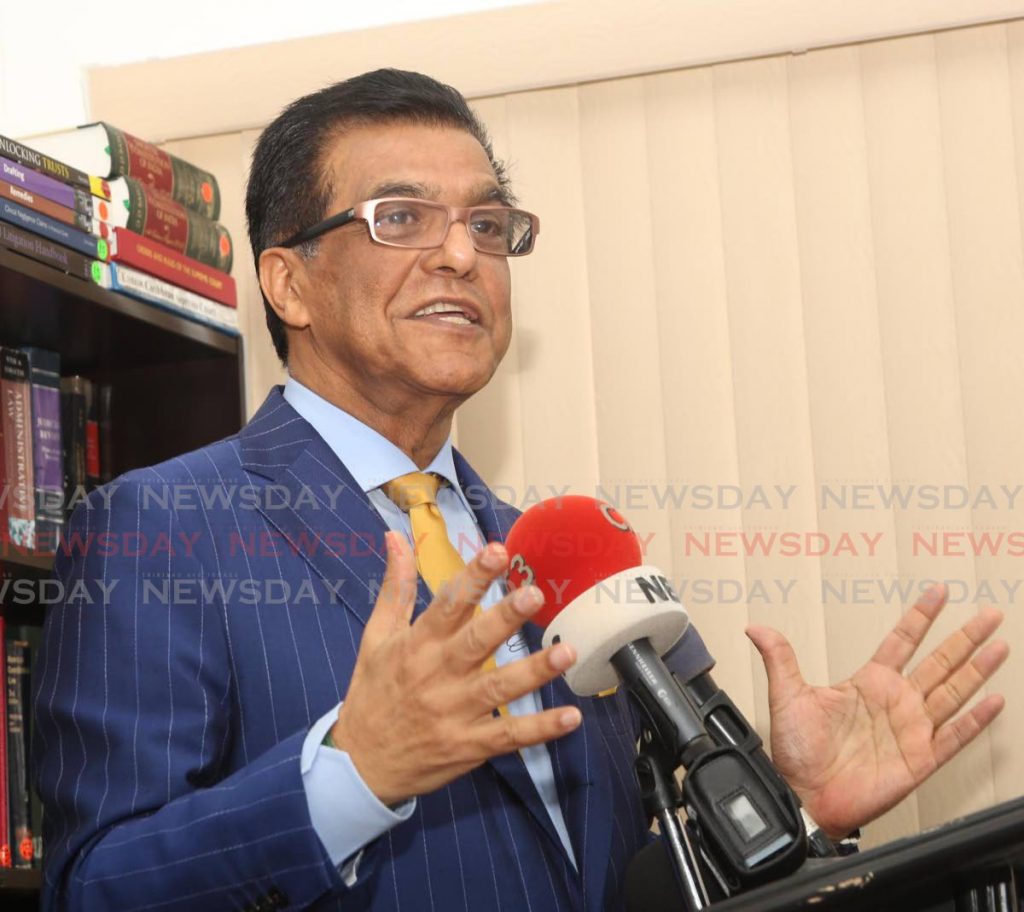Former AG: No need for new law to break THA deadlock

FORMER attorney general Ramesh Maharaj says there is no need for any new laws to break the six-six Tobago House of Assembly (THA) deadlock, as current legislation already provides for that.
He called on THA clerk Myrna McLeod to follow section 92 of the THA standing orders.
Maharaj held a virtual press conference on Friday afternoon to discuss how the THA should move forward from the election tie between the PNM and the Progressive Democratic Patriots (PDP).
Because of the deadlock, neither a presiding officer nor a chief secretary has been chosen. The assemblymen from both parties have failed to elect a presiding officer three times.
The Prime Minister has said amendments to the THA Bill will be drafted and could be before Cabinet “in a few days.”
One of the proposals, he said, is to change the number of seats in the THA to an odd number, though he warned this still does not guarantee the prevention of another deadlock owing to independent candidates. For example, if the number of seats is increased to 15 and the PNM wins seven seats, the PDP wins another seven and an independent candidate wins one, the same problem could arise again.
But Maharaj said this is not necessary and pointed to section 92 (1) of the THA standing orders, which says, “In any matter not herein provided for, resort shall be had to the usage of the House of Representatives of TT which shall be followed as far as the same may be applicable to this assembly and not inconsistent with these standing orders nor with the practice of this assembly.
And 92 (2) says, “In cases of doubt, the standing orders of the assembly shall be interpreted in the light of the relevant usage and practice of the House of Representatives.
But in a release on January 31, Chief Secretary Ancil Dennis commented on this very section, saying “…but section nine of the same standing orders requires the presiding officer to deliberate and decide on this matter.
“Furthermore, section seven of the THA Act states very unambiguously, 'The assemblymen shall, upon the swearing-in referred to in section six, elect a presiding officer to whom the President shall administer the oath set out in the second schedule.'”
He also called on Dr Rowley to “engage the Parliament to treat with this situation as a matter of urgency.”
Maharaj said, “The failure to have a presiding officer elected would frustrate the entire operations of the THA and it will mean the executive council will alone be able to function.
“The intention of standing order 92 is to provide recourse to the standing order of the House of Representatives in order to resolve an issue where there is a tie…No new law could be enacted to determine how a new presiding order can be elected because the existing laws already do that.”
He said the standing order is a “remedy” to break such a deadlock and that it was not up to the State or any public official to “say the existing law is not an appropriate law and therefore requires a new law.”
He said the use of “shall” in the standing order means it is mandatory, not optional.
He added, “It is always open for the two political parties to have discussions, and there can be arrangements for the sharing of political power for a time.
“If the clerk does not utilise order 92 then the clerk would not be following the law to have this problem resolved.”


Comments
"Former AG: No need for new law to break THA deadlock"